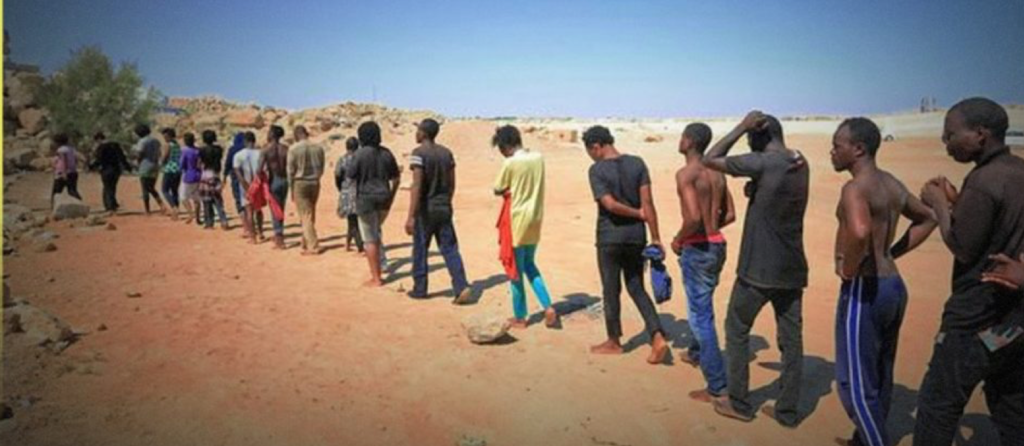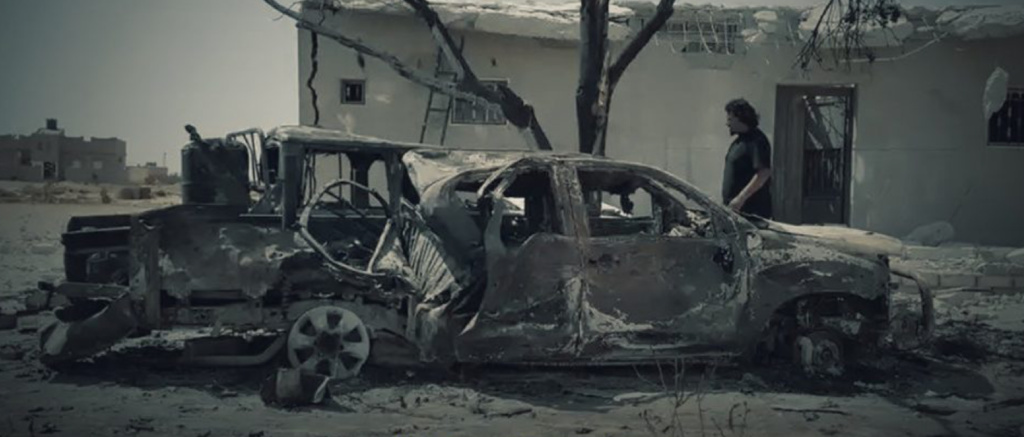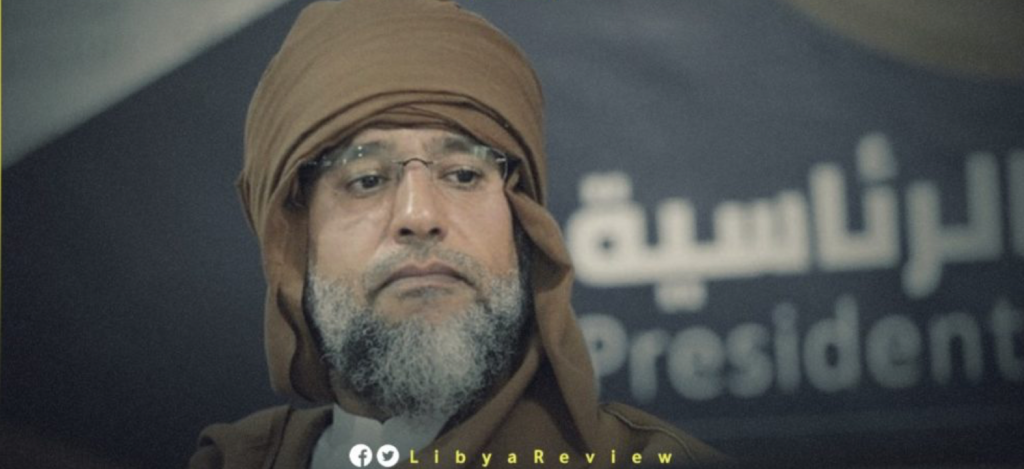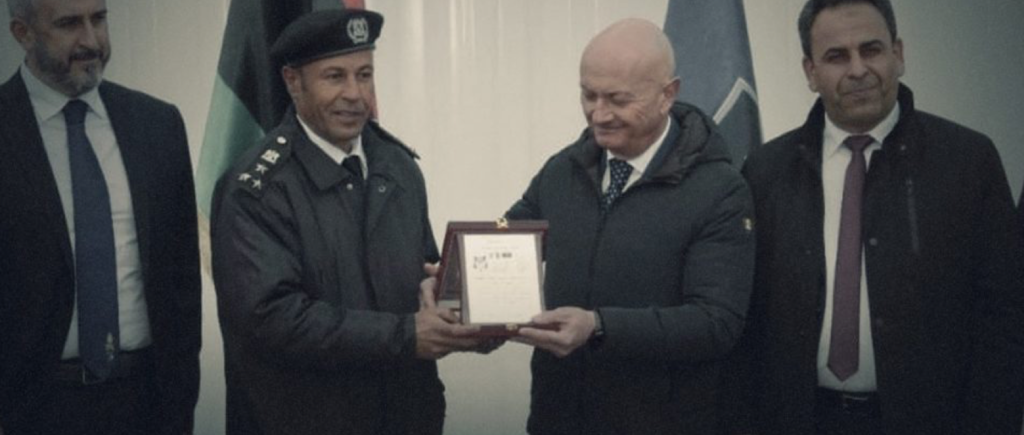LNA reports 24 IS terrorists killed, 1 arrested, 4 LNA troops missing during 3-day clashes near Al-Qatroun in SW Libya.
Jan. 30, former GNA Interior Minister, presidential candidate Bashagha blames GNU for Dec. 24 election fiasco, calls for new government;
Presidential candidate Saif al-Islam Gaddafi proposes to hold parliamentary election now, delay presidential election.
HoR Speaker Saleh states Dbaiba’s GNU ‘expired’, to be replaced according to HoR’s decision.
NATIONAL SECURITY ISSUES
- The Libyan National Army (LNA)’s official Spokesperson, Major General Ahmed Al-Mismari, announced that 24 Islamic State (IS) militants were killed during three-day long clashes against LNA forces near the town of Al-Qatroun in Southwest Libya. Speaking during a press conference Jan. 28, Al-Mismari confirmed that an IS militant was arrested and four LNA soldiers were reported missing during the battles;
- Libya is forcing migrants across its land borders into “no man’s land”, remote stretches of the desert without water, Benjamin Lewis from the Office of the UN High Commissioner for Human Rights (UNHCR) said Jan. 27. “They appear linked to efforts to strengthen Libya’s external border enforcement, so as to prevent migrants from eventually arriving to Europe,” he added;

- Jan. 27, the Fezzan Municipal Council hailed the sacrifices of the Libyan National Army (LNA) in fighting terrorist groups in the south of the country. Especially in the Jabal Asida area, 80km from the municipality of Al-Qatrun. It added that four military personnel were killed in Fezzan, and many others wounded during the violent clashes against IS militants in southwest Libya.

NATIONAL POLITICS AND SOCIAL ISSUES
- Jan. 30, the Libyan presidential candidate, Fathi Bashagha, a former Interior Minister, accused the Government of National Unity (GNU) of obstructing the general elections. Speaking during an informal event with tribal elders, Bashagha stated that there is a consensus between Libyans of various political allegiances to replace the interim government with a new one through elections;
- The Libyan Presidential candidate, Saif Al-Islam Gaddafi presented a political initiative to solve the current political impasse. He suggested postponing the Presidential vote, without delaying the Parliamentary elections. Gaddafi stressed that the Parliamentary elections will ensure the election of a legislature that will “spare the country the possibility of war or division, and block the way for all justifications for a new transitional phase;”

- Jan. 25, the Spokesman for the Libyan Parliament, Abdullah Blaiheg stated that MP’s have set 12 conditions to accept the candidacy for the next Prime Minister. Primarily, the candidate must be a Muslim Libyan citizen born to Muslim Libyan parents, with no personal or family affiliations with any foreign country; must have no prior criminal record and renounce all existing public positions before submitting his or her candidacy. Fathi Al-Marimi, the media advisor to the Speaker of the Libyan Parliament, Ageela Saleh, confirmed that the country’s Presidential elections are set to be held within 6-8 months. In press statements Jan. 25, Al-Marimi said the Roadmap Committee, in addition to a majority of MP’s, have called for a new interim Prime Minister;
- The Speaker of the Libyan Parliament, Ageela Saleh stated that the Government of National Unity (GNU), headed by Abdel-Hamid Dbaiba has expired, and cannot continue. During a Parliamentary session Jan. 24, Saleh said: “We need food, medicine, and healthcare, and this is the task of the executive authority. The issue of the government is that its term has expired, and we are here today debating whether to continue or change it.”
INTERNATIONAL RELATIONS
- Jan. 29, the United States Special Envoy to Libya, Richard Norland denounced the terrorist attack carried out by Islamic State militants in southern Libya, killing three security personnel. In a statement, Norland said, “we condemn the recent terrorist attack in the South and express our condolences to the families of the victims and those killed in the fighting;”
- The Secretary-General of the United Nations, Antonio Guterres called on the Security Council for “unity and clarity” on the extension of the mandate of the United Nations Support Mission in Libya (UNSMIL). His Spokesman, Stéphane Dujarric said in a press conference that the Secretary-General is working on implementing the mandate given to him by the Security Council;
- The Egyptian Minister of Trade and Industry, Nevin Jameh revealed that the Libyan market was one of the largest for Egyptian exports in 2021. It ranked 9th globally, with exports worth USD 938m, compared to USD 570m in 2020, achieving an increase of 64.5%;
- Diplomats have said that the UN Security Council is being called to extend its political mission in Libya, until 15 September. This would refrain from taking a new position on the postponed elections, which were due to be held last month. The UK has proposed a draft resolution to extend the United Nations Support Mission in Libya (UNSMIL) for another year. It stipulated the need for the Libyan authorities to take “steps to facilitate the Presidential and Parliamentary elections as soon as possible,” according to the AFP news;
- Jan. 26, the Libyan Interior Ministry issued a statement, that it had received equipment for coastal security, provided by the Italian government. This is part of the joint cooperation agreement between the two countries. The statement indicated that Libya received a mobile maintenance workshop, and spare parts for boats and marine parts. In addition to mobile administrative offices for the port of Tripoli;

- Libya’s acting Oil Minister, Ali Al-Abed met with the Saudi Ambassador to Libya, Abdulaziz bin Ali Al-Saqr in Tripoli. They discussed strengthening bilateral cooperation, and investment in the energy sector. Al-Abed also discussed the possibility of benefiting from the Saudi experience in organizing expatriate workers, and developing the labour market;
- A recent confidential EU military report revealed calls for continuing a controversial program to train and equip Libya’s Coast Guard and Navy. The report offers a rare look at Europe’s determination to support the interception and return of tens of thousands of migrants to Libya, where they continue to face insufferable abuse, according to the Associated Press. Compiled by Italian navy Rear Adm. Stefano Turchetto, the Head of the EU arms embargo surveillance mission (Operation IRINI) the report acknowledges the “excessive use of force” by Libyan authorities, adding that EU training is “no longer fully followed.”























